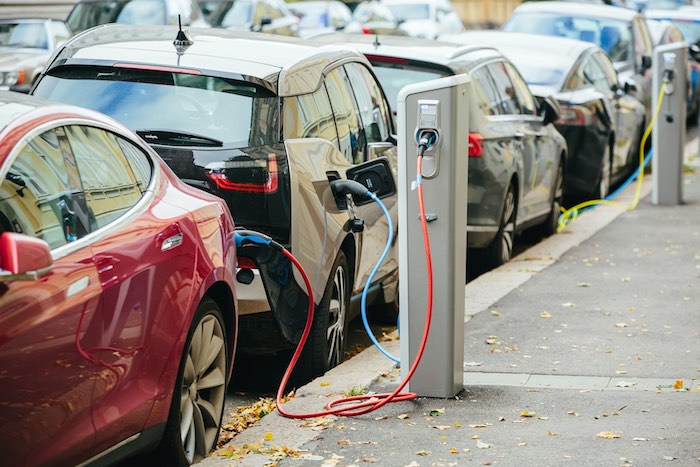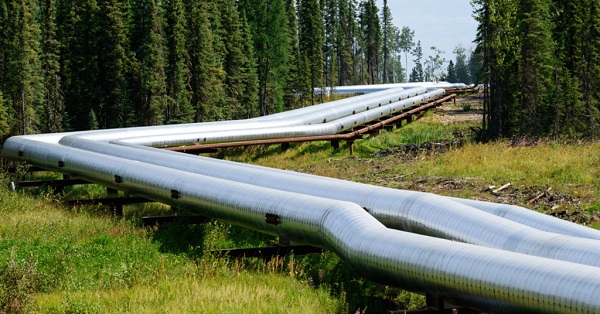Dan McTeague
The problem with Electric Vehicles

From Canadians for Affordable Energy
 Written By Dan McTeague
Written By Dan McTeague
For years now we’ve been hearing about the wonders of electric vehicles (EVs). Enormous amounts of money have been spent by governments to entice people to buy them, from subsidies to free charging stations.
Here in Canada, the Trudeau Liberals have already subsidised EVs at a cost of $1 billion. Another $680 million in the next five years will go toward the Zero Emission Vehicle Infrastructure Program (ZEVIP) to build an entire new infrastructure of charging stations.
In Ontario, Doug Ford’s government are ready “to become a North American hub for the next generation of electric vehicles,” and Ford’s PCs have recently committed to matching a $295 million investment from the Trudeau’s Liberals to retool the Ford Oakville Assembly Complex to become a global hub for battery electric vehicle production.
Electric vehicles are held up as the great green alternative to gas-powered vehicles. In fact, the federal government has set a mandatory target for all new light-duty cars and passenger trucks to be zero-emission by 2035 [read: electric and not gas-powered]. This is even more ambitious than their previous goal of 100% sales by 2040.
And, it seems, virtually the entire Canadian political class has either embraced or surrendered to the seemingly unstoppable momentum of EVs.
Well, here’s an interesting twist. Just the other week it was revealed that the Swiss government is considering legislation that would make it illegal for people to drive EVs over the winter except when it’s “absolutely necessary”.
Yes, you read that correctly. The Swiss government is discouraging people – to the point of making it illegal! – from driving their electric cars.
Why? Simple: there is not enough energy supply in Switzerland to power them.
Confused? How can this be?
Let me explain.
During the summer months, Switzerland gets around 60 percent of its energy from hydropower. But in the winter, hydro can’t produce enough energy, so the country imports a lot of electricity from France and Germany – both of which have long been dependent on Russian oil and gas imports.
Now that those “fossil fuels” have largely been cut off, these various European countries – not just Switzerland – are facing severe energy shortages this winter. This means that there won’t be enough electricity for people to charge their EVs. This move highlights the obvious flaw in this push towards electrification, especially EVs. While EVs don’t burn fuel, you need to charge the battery which, of course, requires energy.
Still confused? Right – perhaps you have never stopped to consider where the “energy” comes from that powers the EV charging stations?
Or did you just think that it was “magic” that powered the EVs?
Almost everywhere in the world, the charging stations are getting a lot of their power from oil and gas – the very same “fossil fuel” energy that EVs were supposed to replace. In many places, the power is coming from coal.
So to be clear, most countries typically need coal or oil or gas as a source of energy to power the charging stations, the very charging stations upon which many EV owners “power” their smug virtue signalling.
Some EV owners think, and even say out loud, that they are more concerned about the environment than you are. How can they say this? Well, this is because they have an electric vehicle, while you drive a gas-guzzling vehicle that is destroying the planet.
All the while, their very same electric vehicle most likely gets its energy, ultimately, from the same sort of greenhouse gas emitting fossil fuel that you do.
Ahem. (There are many other issues with EVs including the very expensive batteries with materials mined out of the earth, which is hardly a “zero emission” activity, or the reliability of the vehicles in our northern climate. More on that in another post.)
Consider too that here in Canada, the Trudeau government is pushing hard for us to move away from fossil fuels which provide reliable base power to our grid, towards renewable energy sources such as wind and solar, which are unreliable and intermittent.
Now imagine how this could play out over the next decades. If governments follow through on their plans to ban traditional gas-powered vehicles, it is their stated hope that everyone will have to drive an EV.
But, at the same time, governments want to shut down the traditional energy sector which – for the foreseeable future –provides most of the energy supply that powers EVs. If we’re forced to get all our power from wind and solar, that just means most people will never be able to drive anywhere.
We should consider what is happening in Switzerland as a warning shot. Our energy grids simply cannot provide enough power for electric vehicles, and this move towards EVs for everyone will fail. The Trudeau government is promoting a short-sighted, virtue-signalling policy that will cause significant societal harm along the way.
Maybe the disastrous situation in Europe this winter will lead to some long-overdue second thoughts about EVs, and the whole climate change agenda.
Automotive
Canada’s EV gamble is starting to backfire

Things have only gone from bad to worse for the global Electric Vehicle industry. And that’s a problem for Canada, because successive Liberal governments have done everything in their power to hitch our cart to that horse.
Earlier this month, the Trump Administration rolled back more Biden-era regulations that effectively served as a back-door EV mandate in the United States. These rules mandated that all passenger cars be able to travel at least 65.1 miles (and for light trucks, 45.2 miles) per gallon of gasoline or diesel, by the year 2031. Since no Internal Combustion Engine (ICE) vehicle could realistically conform to those standards, that would have essentially boxed them out of the market.
Trump’s rolling them back was a fulfillment of his campaign promise to end the Biden Administration’s stealth EV mandates. But it was also a simple recognition of the reality that EVs can’t compete on their own merits.
For proof of that, look no further than our second bit of bad news for EVs: Ford Motor Company has just announced a massive $19.5 billion write-down, almost entirely linked to its aggressive push into EVs. They’ve lost $13 billion on EVs in the past two years alone.
The company invested tens of billions on these go-carts, and lost their shirt when it turned out the market for them was miniscule.
Ford’s EV division president Andrew Frick explained, “Ford is following the customer. We are looking at the market as it is today, not just as everyone predicted it to be five years ago.”
Of course, five years ago, the market was assuming that government subsidies-plus-mandates would create a market for EVs at scale, which hasn’t happened.
As to what this portends for the market, the Wall Street Journal argued, “The company’s pivot from all-electric vehicles is a fresh sign that America’s roadways – after a push to remake them – will continue to look in the near future much like they do today, with a large number of gas-powered cars and trucks and growing use of hybrids.”
And that’s not just true in the U.S. Across the Atlantic, reports suggest the European Union is preparing to delay their own EV mandates to 2040. And the U.K.’s Labour government is considering postponing their own 2030 ICE vehicle ban to align with any EU change in policy.
It’s looking like fewer people around the world will be forced by their governments to buy EVs. Which means that fewer people will be buying EVs.
Now, that is a headache for Canada. Our leaders, at both the federal and provincial levels, have bet big on the success of EVs, investing billions in taxpayer dollars in the hopes of making Canada a major player in the global EV supply chain.
To bolster those investments, Ottawa introduced its Electric Vehicle mandate, requiring 100 per cent of new light-duty vehicle sales to be electric by 2035. This, despite the fact that EVs remain significantly more expensive than gas-and-diesel driven vehicles, they’re poorly suited to Canada’s vast distances and cold climate, and our charging infrastructure is wholly inadequate for a total transition to EVs.
But even if these things weren’t true, there still aren’t enough of us to make the government’s investment make sense. Their entire strategy depends on exporting to foreign markets that are rapidly cooling on EVs.
Collapsing demand south of the border – where the vast majority of the autos we build are sent – means that Canadian EVs will be left without buyers. And postponed (perhaps eventually canceled) mandates in Europe mean that we will be left without a fallback market.
Canadian industry voices are growing louder in their concern. Meanwhile, plants are already idling, scaling back production, or even closing, leaving workers out in the cold.
As GM Canada’s president, Kristian Aquilina, said when announcing her company’s cancellation of the BrightDrop Electric delivery van, “Quite simply, we just have not seen demand for these vehicles climb to the levels that we initially anticipated…. It’s simply a demand and a market-driven response.”
Prime Minister Mark Carney, while sharing much of the same environmental outlook as his predecessor, has already been compelled by economic realities to make a small adjustment – delaying the enforcement of the 2026 EV sales quotas by one year.
But a one-year pause doesn’t solve the problem. It kicks the can down the road.
Mr. Carney must now make a choice. He can double down on this troubled policy, continuing to throw good money after bad, endangering a lot of jobs in our automotive sector, while making transportation more expensive and less reliable for Canadians. Or he can change course: scrap the mandates, end the subsidies, and start putting people and prosperity ahead of ideology.
Here’s hoping he chooses the latter.
The writing is on the wall. Around the world, the forced transition to EVs is crashing into economic reality. If Canada doesn’t wake up soon, we’ll be left holding the bag.
Dan McTeague
Will this deal actually build a pipeline in Canada?

By Dan McTeague
Will Carney’s new pipeline deal actually help get a pipeline built in Canada? As we said before, the devil is in the details.
While the establishment and mainstream media cheer on the new pipeline agreement, there are specific details you need to be aware of.
Dan McTeague explains in his latest video.
-

 Energy1 day ago
Energy1 day agoWhy Japan wants Western Canadian LNG
-

 Business2 days ago
Business2 days agoWhat Do Loyalty Rewards Programs Cost Us?
-

 Business1 day ago
Business1 day agoMainstream media missing in action as YouTuber blows lid off massive taxpayer fraud
-

 Business1 day ago
Business1 day agoLand use will be British Columbia’s biggest issue in 2026
-

 International16 hours ago
International16 hours agoChina Stages Massive Live-Fire Encirclement Drill Around Taiwan as Washington and Japan Fortify
-

 Digital ID15 hours ago
Digital ID15 hours agoThe Global Push for Government Mandated Digital IDs And Why You Should Worry
-

 Haultain Research2 days ago
Haultain Research2 days agoSweden Fixed What Canada Won’t Even Name
-

 Energy16 hours ago
Energy16 hours agoRulings could affect energy prices everywhere: Climate activists v. the energy industry in 2026





